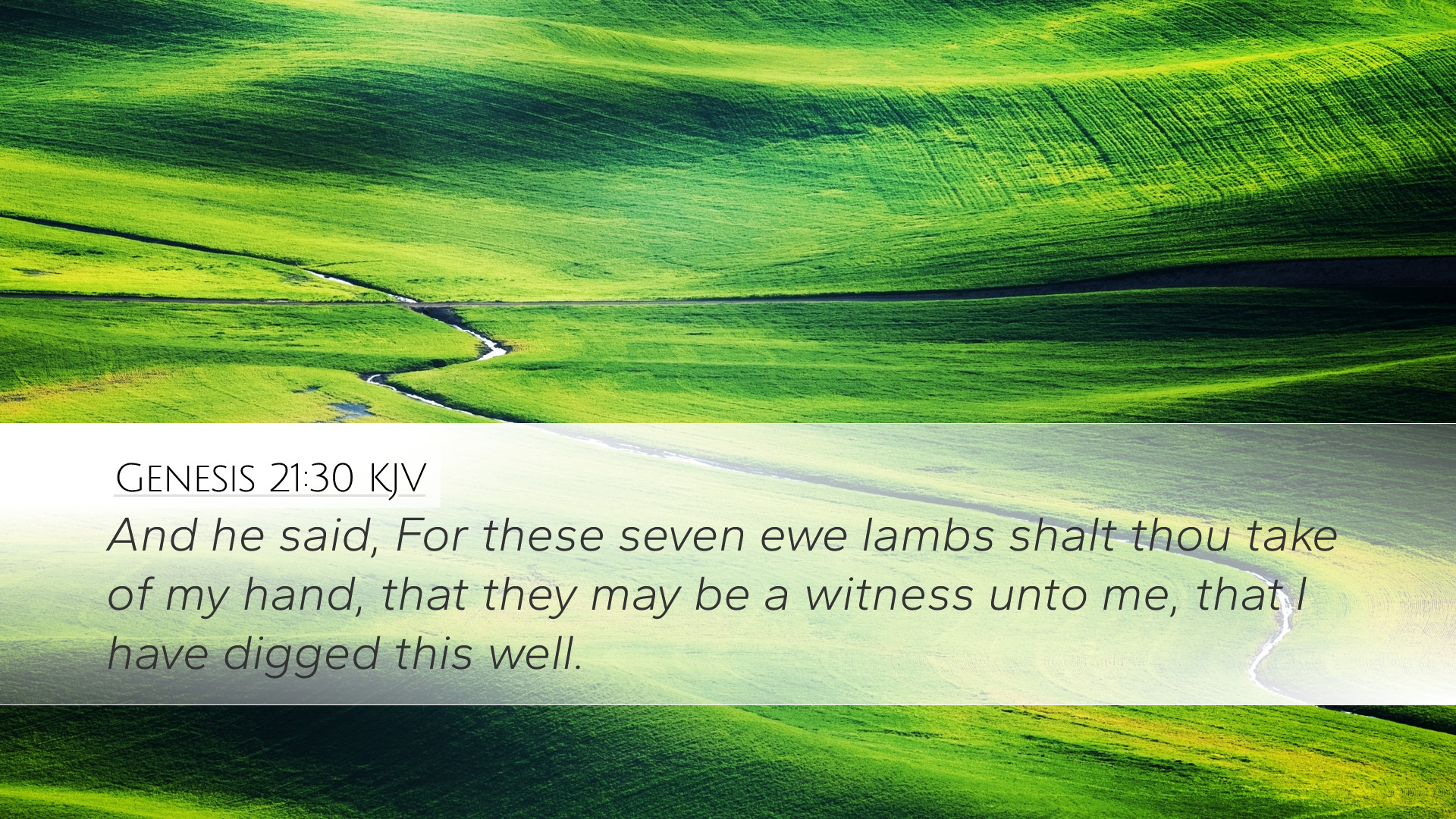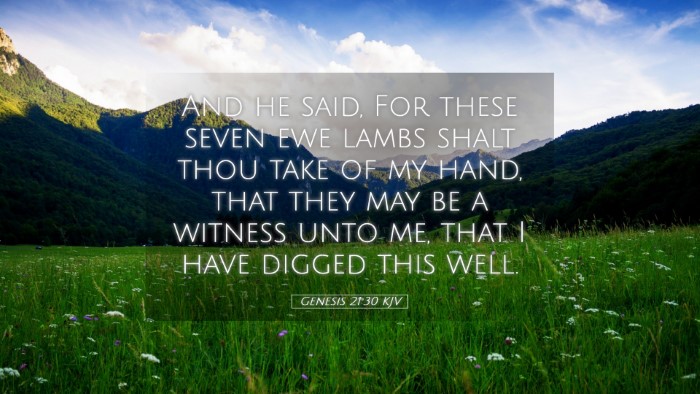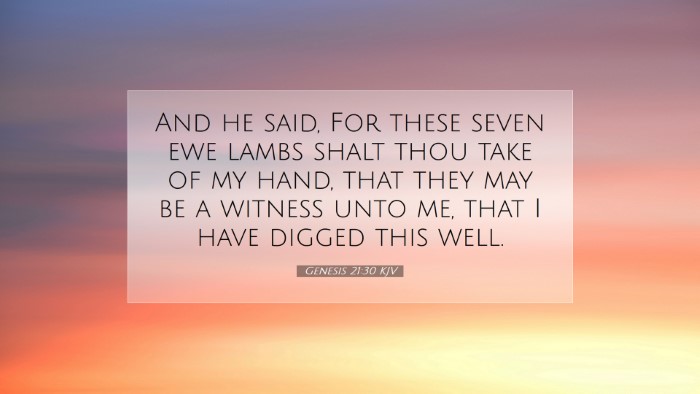Commentary on Genesis 21:30
Genesis 21:30 states: “And he said, ‘For these seven ewe lambs you will take from my hand, that they may be my witness that I have dug this well.’” This verse, part of the narrative involving Abraham and Abimelech, introduces significant theological themes that deserve careful exploration.
Contextual Background
The setting of this verse is crucial in understanding its implications. Abraham had been residing in the land of the Philistines and had faced conflicts over water rights with Abimelech, the king of Gerar. The well in question symbolizes not only physical sustenance but also spiritual and relational harmony between Abraham and Abimelech.
Theological Insights
This passage carries multiple theological reflections that are pivotal for scholars and theologians:
- Covenantal Relationships: Abraham's dealings with Abimelech represent interactions central to the understanding of covenant. The gift of the seven ewe lambs signifies a peace offering, attempting to establish a harmonious relationship built on mutual respect.
- The Nature of Witness: The phrase "that they may be my witness" emphasizes the importance of evidence in divine promise and human dealings. The use of physical symbols, like the ewe lambs, serves as a testament to God's faithfulness and Abraham’s integrity.
- God’s Provision: The well can be interpreted as a metaphor for God’s provision. Abraham ensuring his rights to the well underlines the faithfulness of God in providing sustenance for His people.
Commentaries from Notable Scholars
Matthew Henry
Henry places emphasis on Abraham's character as a peacemaker. He interprets the seven ewe lambs as symbols of peace and reconciliation, suggesting that Abraham demonstrated wisdom in how he navigated conflicts. For Henry, this encounter typifies the way believers should resolve disputes—through fairness and integrity, thereby reflecting God’s character.
Albert Barnes
Barnes offers a historical view, highlighting the significance of the number seven, which often represents completeness in Scripture. This implication suggests that Abraham’s actions were not just about a simple transaction but a complete and satisfactory resolution of the conflict regarding the well. Barnes also notes that the act of giving the ewe lambs serves as a permanent sign of the agreement and a reminder of the divine covenant between Abraham and God.
Adam Clarke
Clarke analyses the socio-political implications of this transaction. He points out that in the ancient Near East, gifts often sealed agreements and highlighted the importance of establishing rightful ownership. The seven ewe lambs, thus, become not only a gift but also a legal right to the well. Clarke sees this as an affirmation of Abraham’s rights and as an acknowledgment by Abimelech of Abraham’s significance and status in the land.
Cultural and Symbolic Interpretations
Scholarly interpretations of the cultural context provide additional understanding:
- Shepherding Imagery: The ewe lambs evoke pastoral imagery, reflecting the agrarian lifestyle of ancient peoples. This parallels the care God exhibits toward His creation as the Good Shepherd.
- Sacrifice and Commitment: The act of offering the ewe lambs can symbolize personal sacrifice. For believers today, it underscores a call to sacrificial living and commitment to covenant relationships within the community of faith.
- Witnessing in Faith: The passage challenges readers to consider what it means to be a witness in their own lives. Abrahams' act serves as a reminder that believers are called to bear witness to God's work through their actions and relationships with others.
Application for Today’s Believers
This verse and its surrounding narrative compel modern believers to reflect on the following applications:
- Conflict Resolution: The method by which Abraham resolved the dispute with Abimelech offers a model for Christians facing conflicts today. It encourages peaceful negotiations and integrity in dealings.
- Witness to God’s Provision: Believers are called to recognize and acknowledge how God has provided in their lives. This passage serves as a reminder to celebrate and share testimonies of God's faithfulness.
- Covenant Living: Just as Abraham established a covenant with Abimelech, Christians are encouraged to cultivate covenant relationships characterized by trust, respect, and mutual support within their communities.
Conclusion
Genesis 21:30 encapsulates profound truths relevant to believers across generations. Through the lens of the commentaries from Matthew Henry, Albert Barnes, and Adam Clarke, we gain insights into the nature of conflict, covenant, and provision. In an age rife with division, this narrative challenges us to pursue peace, act with integrity, and bear witness to God's enduring faithfulness.


